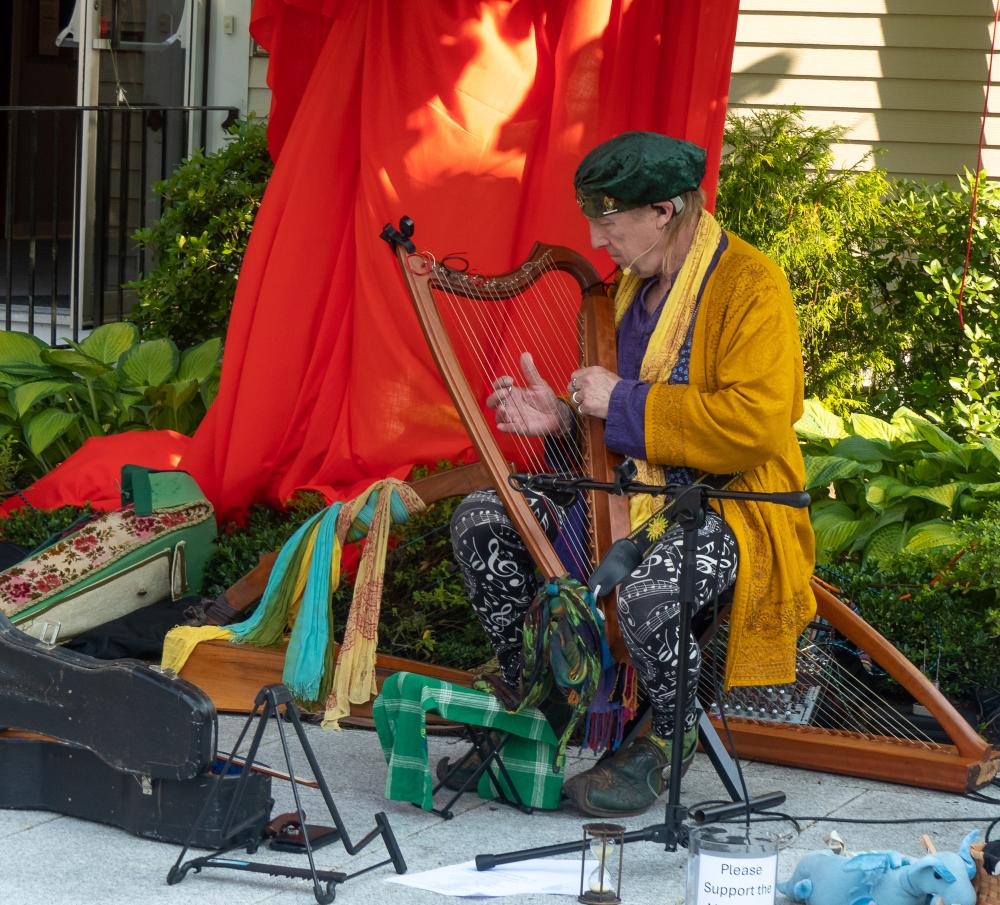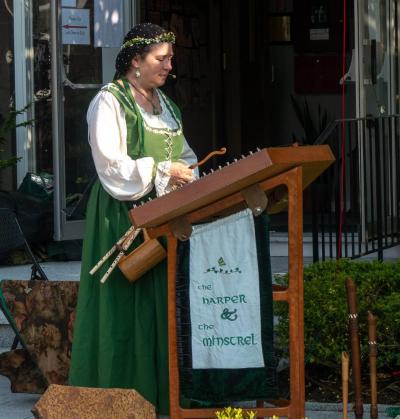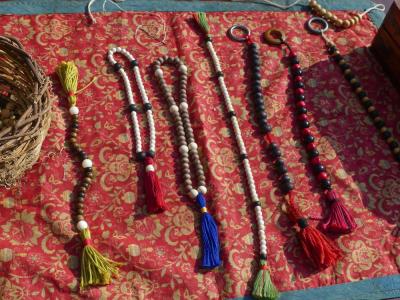Marion church takes spirit from medieval traditions
MARION — Scattered across the lawn of St. Gabriel’s Episcopal Church in Marion, vendors sold handcrafted items while medieval music played in the background in celebration of Pentecost.
A table displaying Pater Noster cords, an old precursor to the modern rosary, was placed at the church’s entrance where Father Eric Fialho explained what they were and welcomed people to the church’s first Whitsun Ale.
The Sunday, June 8 event had vendors of a “modern kind” as well as traditional music and traditional food from the medieval time period, Fialho said.
Prior to the celebration, there was a liturgy, which featured several baptisms, meditation and Eucharist.
“Some of the liturgy was drawn from the Church of England and it was a service of kind of renewal and hope, a service of reminding that the Holy Spirit is here with us and sustaining us as a church, and it also marks the end of Easter officially,” Fialho said.
Fialho said that he’s been interested in holding a Whitsun Ale, a joyful tradition rooted in centuries of Episcopalian church history, “for a long time.”
“My model of ministry … is based off of a medieval cathedral, so I do what medieval cathedrals did, so we really celebrate the fullness of the church here and the church calendar,” he said. “It’s kind of how we operate and we try to, so this is just an extension of that.”
Fialho said that prior to the Reformation, Pentecost was seen as a celebratory time and one of the church’s major holidays on par with Easter and with Christmas paling in comparison.
Pentecost is celebrated by Christians 50 days after Easter to commemorate when the Holy Spirit descended on Jesus’ Apostles while they were in Jerusalem celebrating the Feast of Weeks.
“The Holy Scripture tells us that the Holy Spirit descended upon the disciples and imbued them with gifts of God’s grace in a new way,” he explained.
But then the Reformation began and “took away a lot of the fun out of the church,” Fialho said.
He added, “Processions and pageants and church fairs like this, frivolity, even in churches, and fun and merry making were outlawed in some cases.”
It wasn’t until the mid-19th century that festivals such as Whitsun Ales returned to England.
“What people in countryside England would do for Pentecost, they’d have their church service then they come out and have fun, so that’s kind of what we’re doing in a way,” Fialho said.














